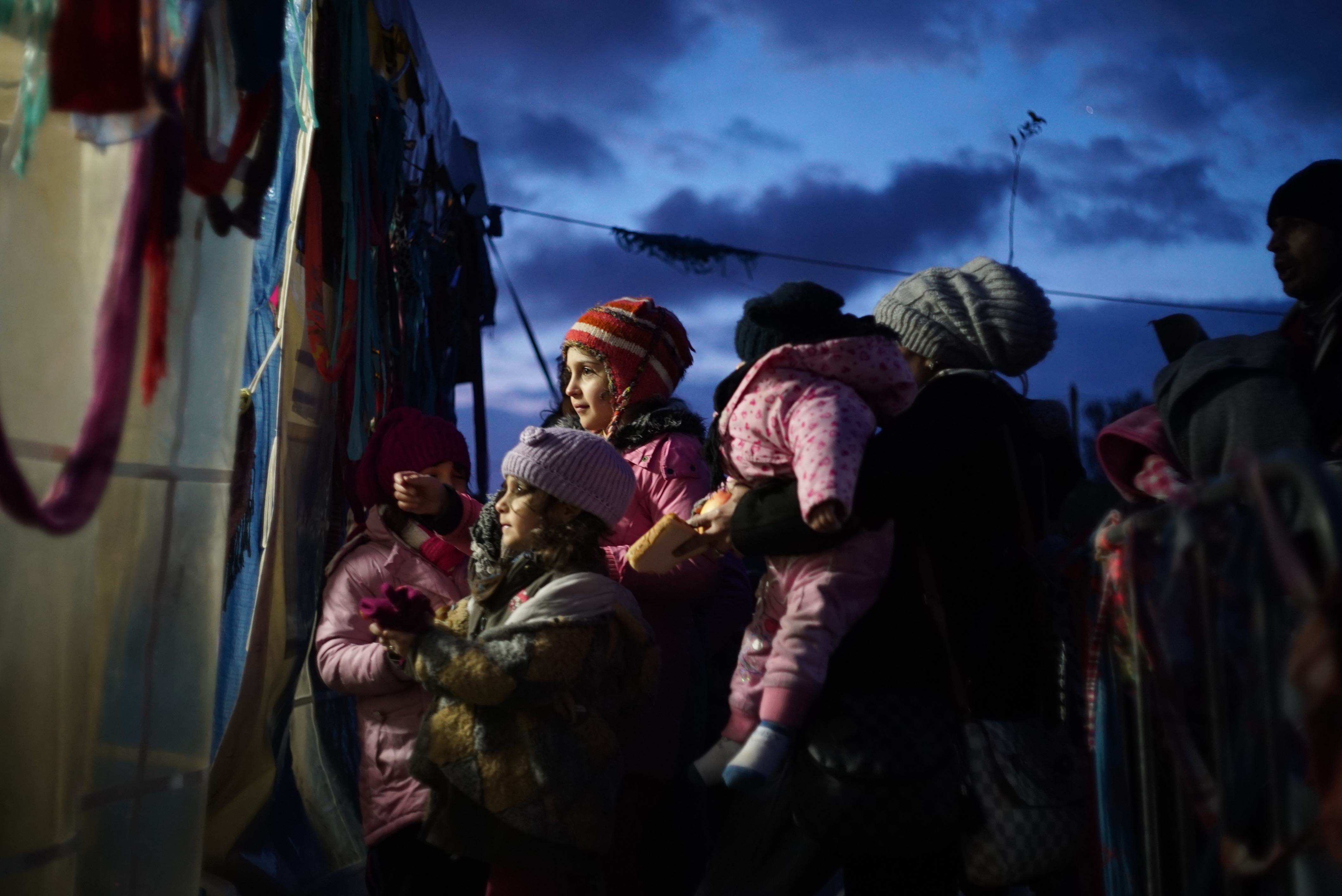Boots on the Ground: Volunteers of the Refugee Crisis
- Text by HUCK HQ
- Photography by Hendrik Faller and Bailey Tom Bailey

Since Lesvos emerged as a focal point of the refugee crisis, volunteer organisations have worked tirelessly to mitigate the human cost of the unfolding humanitarian disaster. The Greek government and international aid agencies have proven unable to cope with the half a million and counting arrivals to the island on flimsy dinghies from Turkey – but where they’ve failed, an army of volunteers have stepped in to meet refugees’ basic needs.
Merel Graeve is a dedicated member of Better Days For Moria – named in reference to the over-stretched and under-resourced official registration camp on Lesvos, called Moria. While the authorities have struggled to cope with one of the largest movements of people in history, the assistance of volunteers has not always been welcomed, and there has been friction over the volunteers’ unofficial “Olive Grove” camp next that sits next to the state-run Camp Moria.
The situation facing arriving refugees reached its lowest ebb in October 2015, when they experienced delays, a lack of resources, and often degrading treatment at the hands of authorities. Conditions for refugees on Lesvos have improved since then, with an increase in supplies and the winter weather discouraging others from making the perilous trip. Life, however, remains tough.
Following the implementation of the ‘one in one out’ EU-Turkey deal, tensions have rising between the Greek government, the UN Refugee Agency (UNHCR), and NGO’s including Doctors Without Borders (MSF). The UNHCR has condemned those responsible for seeing registration camps like Moria being turned into detention centres.
Volunteer organisations like Better Days for Moria are also considering leaving the islands to move to one of the camps on mainland Greece, where tens of thousands of people are now stuck in limbo.
MSF released a statement announcing their decision to leave Lesvos. “We took the extremely difficult decision to end our activities in Moria because continuing to work inside would make us complicit in a system we consider to be both unfair and inhumane,” said Marie Elisabeth Ingres, MSF Head of Mission in Greece. “We will not allow our assistance to be instrumentalized for a mass expulsion operation and we refuse to be part of a system that has no regard for the humanitarian or protection needs of asylum seekers and migrants.”
Enjoyed this article? Like Huck on Facebook or follow us on Twitter.
Shot and directed by Hendrik Faller. Second camera by Bailey Tom Bailey.
Latest on Huck

From his skating past to sculpting present, Arran Gregory revels in the organic
Sensing Earth Space — Having risen to prominence as an affiliate of Wayward Gallery and Slam City Skates, the shredder turned artist creates unique, temporal pieces out of earthly materials. Dorrell Merritt caught up with him to find out more about his creative process.
Written by: Dorrell Merritt

In Bristol, pub singers are keeping an age-old tradition alive
Ballads, backing tracks, beers — Bar closures, karaoke and jukeboxes have eroded a form of live music that was once an evening staple, but on the fringes of the southwest’s biggest city, a committed circuit remains.
Written by: Fred Dodgson

This new photobook celebrates the long history of queer photography
Calling the Shots — Curated by Zorian Clayton, it features the work of several groundbreaking artists including Robert Mapplethorpe, Sunil Gupta, Zanele Muholi and more.
Written by: Miss Rosen

Krept & Konan: “Being tough is indoctrinated into us”
Daddy Issues — In the latest from our interview column exploring fatherhood and masculinity, UK rap’s most successful double act reflect on loss, being vulnerable in their music, and how having a daughter has got Krept doing things he’d never have imagined.
Written by: Robert Kazandjian

Vibrant polaroids of New York’s ’80s party scene
Camera Girl — After stumbling across a newspaper advert in 1980, Sharon Smith became one of the city’s most prolific nightlife photographers. Her new book revisits the array of stars and characters who frequented its most legendary clubs.
Written by: Miss Rosen

Bad Bunny: “People don’t know basic things about our country”
Reggaeton & Resistance — Topping the charts to kick off 2025, the Latin superstar is using his platform and music to spotlight the Puerto Rican cause on the global stage.
Written by: Catherine Jones

